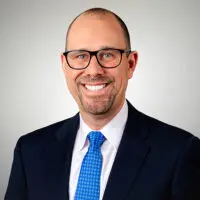Publication
The Department of Justice Offers Individual Corporate Wrongdoers a “Get Out of Jail Free Card” in New Voluntary Self-Disclosure Program
By James Melendres, Aloke Chakravarty, Brett W. Johnson, Joseph G. Adams, and Brenna Fisher
The Department of Justice’s Criminal Division (DOJ) recently announced a Pilot Program on Voluntary Self-Disclosures for Individuals (the Individual VSD Pilot Program or Pilot Program), which allows certain individuals involved in corporate criminal activity to secure a non-prosecution agreement (NPA) by preemptively reporting the misconduct to the DOJ. The Individual VSD Pilot Program is a new initiative designed to expand on DOJ efforts to curb corporate misconduct, announced on the heels of the Whistleblower Program’s introduction in March. The Pilot Program, effective April 15, 2024, bridges a gap in the Whistleblower Program, which allows whistleblowers to receive financial compensation for reporting corporate misconduct, but explicitly excludes individuals involved in the criminal misconduct.
Prior to the launch of the Individual VSD Pilot Program, those aware of corporate misconduct, but not directly involved, had the opportunity for financial reward for reporting it to the DOJ. This left a hole in the reporting structure, as individuals directly involved in the misconduct — who typically possess the most useful information — had little incentive to come forward. As part of the DOJ’s efforts to investigate and prosecute corporate criminal offenses, the Individual VSD Pilot Program provides those who have participated in corporate criminal activity with an opportunity to avoid criminal charges. In particular, the DOJ is offering NPAs as an incentive for complicit individuals to alert the DOJ to “actionable, original information about criminal conduct that might otherwise go undetected or be impossible to prove.” In addition to encouraging individuals to come forward, this program is intended to incentivize corporations “to create compliance programs that encourage robust internal reporting of complaints, that help prevent, detect, and remediate misconduct before it begins or expands, and that allow companies to report misconduct when it occurs.”
The Individual VSD Pilot Program lists several requirements that must be met for individuals to receive a NPA. First, and most critically, the information disclosed to the DOJ must be original information, “meaning non-public information not previously known to the Criminal Division or to any component of the [DOJ].” The individual’s disclosure must be completely voluntary, meaning (1) it precedes any DOJ investigation or other compliance action; (2) the individual has no preexisting obligation or agreement with the DOJ to report; and (3) there is no “threat of imminent disclosure” to either the government or the public. Any disclosure must be “truthful and complete” and must include reporting the individual’s own role in the misconduct. In addition, “[t]he reporting individual must agree to fully cooperate with and be willing and able to provide substantial assistance to the [DOJ] in its investigation” of the reported illicit activities. Further, the reporting individual cannot retain any profit from the criminal wrongdoing and may still be required to pay restitution or victim compensation.
In addition, the information must relate to one of the following six categories:
- Violations by financial institutions, their insiders, or agents, including schemes involving money laundering, anti-money laundering, registration of money transmitting businesses, and fraud statutes, and fraud against or compliance with financial institution regulators;
- Violations related to integrity of financial markets undertaken (1) by financial institutions, investment advisors, or investment funds, (2) by or through public companies or private companies with 50 or more employees, or (3) by any insiders or agents of any such entities;
- Violations related to foreign corruption and bribery by, through, or related to public or private companies, including violations of the Foreign Corrupt Practices Act, violations of the Foreign Extortion Prevention Act, and violations of the money laundering statutes;
- Violations related to health care fraud or illegal health care kickbacks committed by or through public companies or private companies with 50 or more employees;
- Violations by or through public or private companies with 50 or more employees related to fraud against, or the deception of, the United States in connection with federally funded contracting, where such fraud does not involve health care or illegal health care kickbacks; or
- Violations committed by or through public or private companies related to the payment of bribes or kickbacks to domestic public officials.
Importantly, the DOJ specified that certain conditions will disqualify individuals from taking advantage of the Individual VSD Pilot Program. Certain types of crimes – namely, those involving violence, force, sex crimes, crimes against minors and terrorism — are not covered. Additionally, the reporting individual may not occupy a CEO, CFO, or equivalent role, nor can the reporting individual be the organizer or leader of the reported scheme. The Individual VSD Pilot Program likewise does not apply to foreign or domestic government officials. And an individual may not take advantage of the Pilot Program if they have a previous felony conviction for any crime relating to fraud or dishonesty.
Finally, when an individual voluntarily makes a report pursuant to the Individual VSD Pilot Program, the DOJ “retains discretion” to offer the individual a NPA “in appropriate circumstances,” even if the individual comes forward but does not meet all of the Pilot Program’s requirements. Thus, an individual who does not meet every qualification may still benefit from the Individual VSD Pilot Program.
Individuals may immediately begin to self-report pursuant to the Individual VSD Pilot Program. This timing is crucial because the Individual VSD Pilot Program and Whistleblower Program now encourage reporting individuals to race to the finish line, as the DOJ only offers incentives for new information. This race leaves corporations vulnerable to a greater risk of DOJ investigations, with twice the opportunities and incentives for insiders to report corporate misconduct. Not only are uninvolved individuals motivated by financial compensation through the Whistleblower Program, but now those with inside knowledge of the misconduct are motivated by the potential to avoid criminal charges.
Companies should evaluate existing “hotline” programs that allow concerned stakeholders to report any potential issues internally. Companies may also take this opportunity to review existing policies and procedures related to government regulatory (or government contracting) compliance to ensure that the never-ending changes to regulations are internally implemented. Further, companies should consider highlighting the Individual VSD Pilot Program and Whistleblower Program, while also considering outside audits of existing programs to evaluate the status of actual compliance. In the event of a potential violation, companies should consider investigations by outside counsel, rather than internal or non-lawyer consultant reviews to maximize the availability of the attorney-client privilege.
Read the DOJ’s full Individual VSD Pilot Program statement, here.
About Snell & Wilmer
Founded in 1938, Snell & Wilmer is a full-service business law firm with more than 500 attorneys practicing in 17 locations throughout the United States and in Mexico, including Los Angeles, Orange County, Palo Alto and San Diego, California; Phoenix and Tucson, Arizona; Denver, Colorado; Washington, D.C.; Boise, Idaho; Las Vegas and Reno, Nevada; Albuquerque, New Mexico; Portland, Oregon; Dallas, Texas; Salt Lake City, Utah; Seattle, Washington; and Los Cabos, Mexico. The firm represents clients ranging from large, publicly traded corporations to small businesses, individuals and entrepreneurs. For more information, visit swlaw.com.





